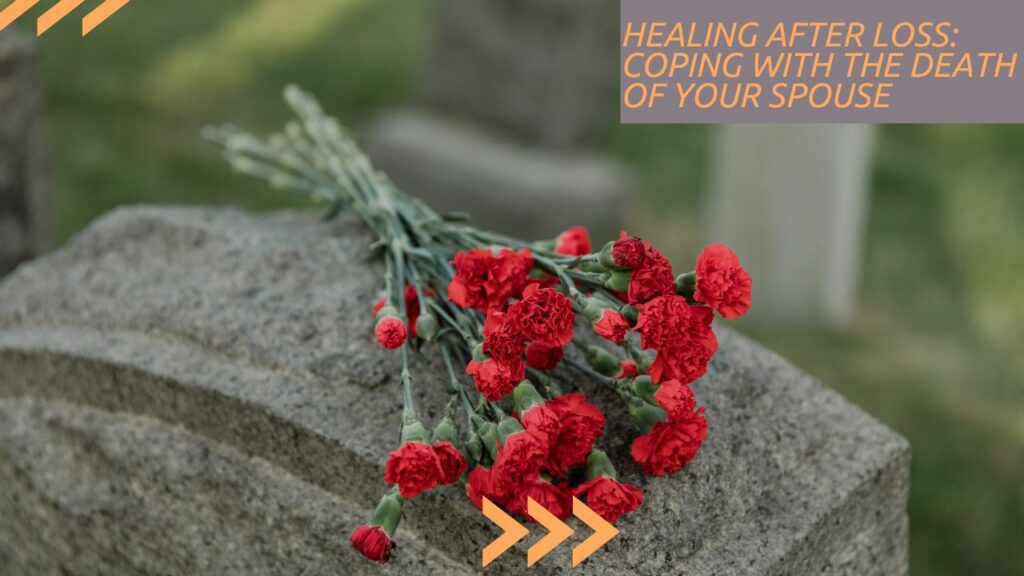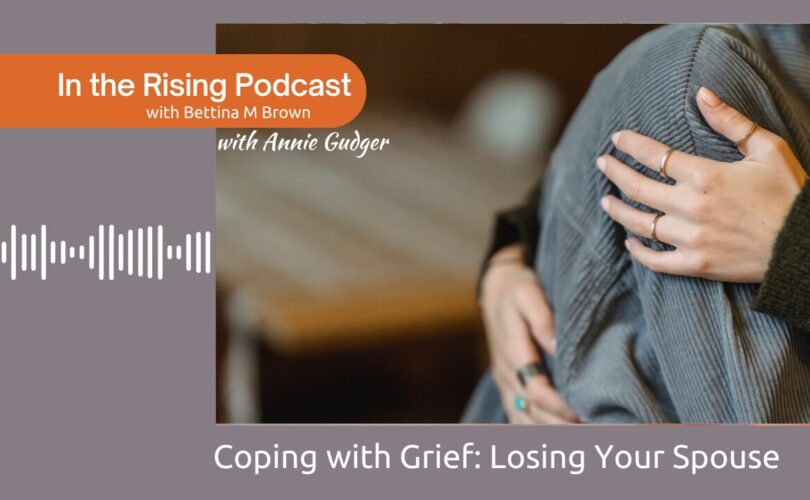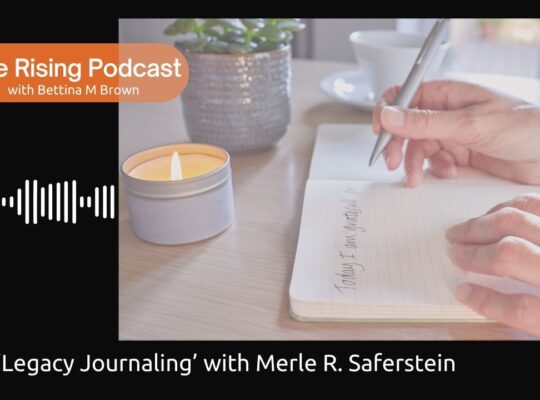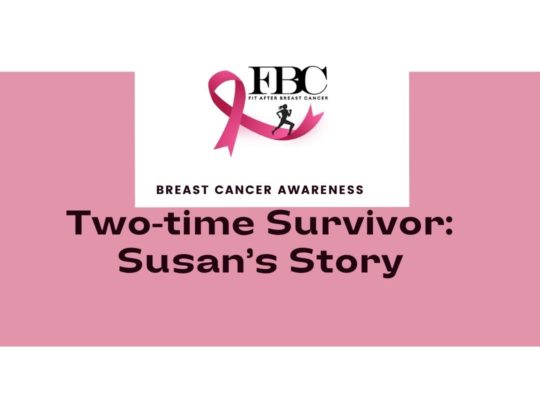In an emotional and heartfelt interview with Bettina M. Brown on the In The Rising Podcast, Annie Gudger shared her story of loss, grief, and healing through the writing of her memoir, The Fifth Chamber. It is a touching conversation that dives deep into the experiences that have shaped Annie’s life; her words resonated with many who have faced the battle of losing a spouse.
Annie’s writing journey began by sharing her most vulnerable moments in her memoir – losing her husband while pregnant. The death of her husband was utterly unexpected. Annie shared that she felt a sense of purpose with her husband as they had planned a wonderful life together and decided to create a family. There were great feelings of loss in sharing this vulnerability that allowed her to connect with others and create a narrative that would resonate with many. She mentioned that despite some “cringy” moments, being vulnerable helps people feel more comfortable opening up about their own experiences, allowing meaningful connections.
When asked what she would say to herself during those difficult days, Annie reflected on the importance of perseverance while maintaining hope for the future. The intense grief while coping with loss was life-altering for her. Assuring herself it would eventually be okay, she emphasized growing as a person with an even bigger heart due to this experience.
Discussing death and grief can be challenging, especially in a society where these topics are often considered taboo. Annie highlighted the importance of normalizing conversations around grief within communities and families. We can build a culture of understanding and acceptance by talking candidly about death from a young age.
In this inspiring interview, Annie Gudger conveys strength and vulnerability as they discuss the power of healing through storytelling. By embracing vulnerability and fostering conversations around grief, Annie’s incredible journey through life is a testament to the resilience of the human spirit and the importance of supporting one another through life’s most challenging moments during the mourning process.
Annie shared that she had decided to seek professional assistance to help her with depression and anxiety. She knew that part of her healing process would be to find support groups that focus on grief.

Mourning the Death of a Spouse
The death of a spouse has been rated as one of the most, if not the most, stressful events for anyone. Overcome by severe, complicated grief, many remaining spouses will stop being able to focus on their own self-care habits. These can look very different, but the common ones include struggles with healthy eating, decreased sleep, and going through the roller coaster of a broad range of emotions. Family members may be unsure how to help the grieving person, often believing that as time passes, the grief will naturally be reduced.
Sometimes the grief process creates thoughts and feelings of betrayal, anger, numbness, and anxiety causing some people to move towards alcohol or drugs. Dealing with overwhelming pain can also present as some people neglect to take their prescription medications regularly as they are attempting to adjust to life without their partner.
In the United States, the Substance Abuse and Mental Health Administration offers anyone in crisis to seek help by calling 988 for assistance. There is no judgment in this call, as it will help you move to locate local health as well as help you navigate the acute grief. As grief can last a long time after a spouse’s death, it is good to know that ongoing resources are available.
Allow Yourself to Grieve the Loss of Your Spouse or Partner
Though a decline in the health of the remaining spouse can happen at any time in life, the living spouse may feel that they have to move on with their daily life as soon as possible. The surviving spouse may find it hard to reach out to people initially or join grief counseling.
However, allowing yourself the time to grieve before making major life decisions is not only good but likely necessary. Part of healing includes being able to share memories, being active, and coming to terms with the loss.
Allowing oneself to grieve the loss of a partner or spouse is an essential and deeply personal journey that cannot be rushed or overlooked. The emotional aftermath of losing a significant other is a profound experience that touches every aspect of one’s being, encompassing a spectrum of emotions from deep sadness to anger, disbelief, and even relief in some circumstances.
Grieving is not a sign of weakness; it is a testament to the depth of one’s love and connection with one’s partner or spouse. It is a natural and necessary process that allows individuals to come to terms with their loss, process their emotions, and begin the healing journey. Suppressing grief or attempting to bypass it can lead to prolonged emotional suffering, unresolved feelings, and potential mental health challenges in the future.
Furthermore, allowing oneself to grieve is a transformative experience that fosters personal growth, resilience, and a deeper understanding of oneself. It provides an opportunity for introspection, reflection, and honoring the memories shared with a loved one. Embracing grief enables individuals to navigate the complexities of loss while preserving the legacy and impact of their partner or spouse in their lives.
In this challenging grief journey, seeking support from loved ones, friends, support groups, or professional counselors who can provide comfort, understanding, and guidance is crucial. Sharing memories, expressing emotions, and commemorating the life of a partner or spouse can facilitate healing and create a sense of connection amidst the pain.
Sharing Memories
Sharing memories of a spouse who has passed away holds profound significance in the grieving process. It fosters healing, connection, and preservation of the legacy created. Vocalizing cherished memories, recounting shared experiences, and celebrating the life of a departed spouse allows individuals to honor their legacy, perpetuate their impact, and commemorate the enduring bond forged throughout their relationship.
Furthermore, sharing memories cultivates a connection with others who knew and loved the departed spouse, fostering mutual support, understanding, and solidarity amidst grief. By recounting stories, anecdotes, and reflections, individuals create a rich tapestry of remembrance that transcends time, preserving the essence, values, and spirit of their loved ones for generations to come.
Moreover, sharing memories serves as a therapeutic outlet, enabling individuals to navigate the complexities of grief, express emotions, and find solace in the collective reminiscence of cherished moments. It fosters a sense of continuity, resilience, and celebration of life, transforming grief into a poignant tribute that honors a beloved spouse’s legacy, love, and enduring impact.
In essence, sharing memories of a spouse who has passed away is a profound act of remembrance, love, and reverence that transcends loss, fostering healing, connection, and eternal preservation of the enduring bond and legacy forged through love, shared experiences, and cherished moments.

Finding a Support System
Finding a support group or good friends to spend time with is significant, especially for the first few months after the partner’s death. The widowhood effect is a phenomenon in which the grieving person dies. This is widely called “dying of a broken heart.” According to the National Council on Aging, the first 90 days are particularly vulnerable as 30-90% of remaining partners experience physical symptoms. These symptoms can include digestive issues, weight loss or gain, nervousness, anxiety, sleep issues and even a long illness. Though a new widow can feel overwhelming loss, the lack of social support can make the significant changes of the new life even more arduous.
The grief journey varies from person to person. Each person’s comfort level with expressing their feelings during the difficult time. For some, the values they were raised with include keeping all feelings internalized. Others feel that the emotional pain is just too great to discuss yet. The dynamic support system during grief can be found through local resources or your healthcare provider. Many insurance companies provide some counseling benefits.
Maneuvering through the Stages of Grief
Navigating the stages of grief is a complex and individualized journey that individuals experience uniquely. However, the process often mirrors the five commonly recognized stages: denial, anger, bargaining, depression, and acceptance. Understanding that grief is not linear but a cyclical and fluid process can provide solace and clarity during this tumultuous time.
Initially, denial serves as a protective mechanism, shielding individuals from the overwhelming reality of their loss. This phase may manifest as shock, numbness, or disbelief, allowing individuals to gradually assimilate the profound changes in their lives. As denial begins to wane, anger may emerge, directed inward, outward, or even towards the departed loved one, as individuals grapple with feelings of injustice, abandonment, or helplessness.
Subsequently, the bargaining stage unfolds, characterized by a genuine quest for meaning, reconciliation, or restitution. Individuals may find themselves negotiating with a higher power, contemplating “what if” scenarios, or seeking ways to reverse or mitigate their loss. However, as the gravity of the situation becomes increasingly palpable, depression may permeate, enveloping individuals in feelings of sadness, emptiness, and profound sorrow.
Ultimately, acceptance emerges as a beacon of hope and healing, signifying a gradual reconciliation with the reality of the loss and a newfound equilibrium amidst the pain. This stage does not mean the absence of grief. Still, it is a profound acceptance of the irrevocable changes and a commitment to forging a path forward, honoring the legacy and memories of the departed loved one.
Throughout this intricate journey, it is essential to cultivate self-compassion, seek support from loved ones, and embrace the myriad emotions that accompany grief. By acknowledging, expressing, and navigating through the stages of grief with resilience, patience, and grace, individuals can embark on a transformative healing process, fostering personal growth and preserving the enduring connection with their departed loved one.
How Long is Normal to Grieve the Death of Your Spouse?
The duration and intensity of grief following the loss of a spouse vary significantly among individuals, as everyone processes and copes with loss in their unique way. There is no definitive timeline or “normal” duration for grieving, as grief is a deeply personal and multifaceted experience that may encompass months, years, or even a lifetime. Factors such as the nature of the relationship, individual coping mechanisms, support systems, and prior experiences with loss can influence the grieving process and its duration.
Some individuals may navigate through the stages of grief more swiftly, gradually integrating their loss and embracing new beginnings. In contrast, others may grapple with lingering emotions, memories, and adjustments over an extended period. It is crucial to recognize that grief is not linear but somewhat cyclical, characterized by emotional fluctuations, milestones, and healing moments.
Moreover, cultural, societal, and familial expectations may inadvertently impose arbitrary timelines or pressures on individuals to “move on” or expedite their grieving process. However, it is essential to prioritize self-care, seek support from loved ones or professional resources, and honor one’s unique journey through grief, fostering compassion, patience, and understanding towards oneself during this challenging and transformative experience.
Make Plans and Be Active
Research has shown that staying active in day-to-day activity activities.
After the death of a spouse, embracing activity and making plans can play a pivotal role in navigating the grieving process and fostering resilience. Engaging in activities, whether it be hobbies, social interactions, or new experiences, provides individuals with a sense of purpose, distraction, and a gradual reintegration into daily life. Maintaining a semblance of routine and structure can alleviate feelings of isolation, despair, and stagnation, facilitating emotional healing and gradual adaptation to life without a loved one.
Furthermore, making plans, setting goals, or embarking on new endeavors can instill hope, direction, and a renewed sense of identity amidst profound loss. Whether it involves pursuing personal aspirations, establishing new traditions, or honoring the legacy of the departed spouse, proactive planning empowers individuals to reclaim agency, envision a meaningful future, and celebrate the memories shared with their loved ones.
Moreover, engaging in activities and setting objectives fosters opportunities for personal growth, self-discovery, and rejuvenation, enabling individuals to cultivate resilience, strength, and a deeper understanding of themselves. Embracing activity and making plans after the death of a spouse is not about erasing memories or moving on hastily but rather about honoring the past, embracing the present, nurturing hope for the future, celebrating the enduring bond with a beloved partner while forging a path forward with courage, grace, and determination.
Listen to the Podcast Episode Featuring Anne Gudger
References: https://www.ncoa.org/article/the-widowhood-effect-how-to-survive-the-loss-of-a-spouse
https://www.nia.nih.gov/health/grief-and-mourning/mourning-death-spouse
https://www.ncoa.org/article/the-widowhood-effect-how-to-survive-the-loss-of-a-spouse
https://www.samhsa.gov/find-help/988/faqs
https://www.psychologytoday.com/us/blog/understanding-grief/201807/surviving-the-death-of-a-spouse







